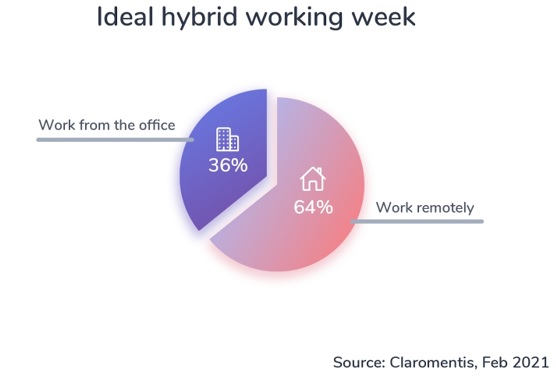
Nowadays, the working remotely lifestyle is at its peak and a digital nomad visa will be a boon for you to work in a foreign country like Spain. Since we were struck by the pandemic, many people lost their job during that time, and after some time job market came up with a solution of working remotely.
According to the expert report, the percentage of average employees who want to work remotely is 64% compares to 36% who want to work physically in the office.

Moreover, due to the surge of interest in people who are willing to work remotely, Countries like- Indonesia, Hungary, Portugal, Croatia, etc. wanted to take full advantage by bringing talent from all over the world. Spain is a little bit behind in the race of providing digital nomad visas. Recently in Jan 2022, a “Start-up Act” has been submitted to the Spanish parliament in favour of issuing visas to attract talent from globally.
So, if you’re planning to work & enjoy as a teacher of English as a foreign language in a beautiful country that has exotic foods, beaches, and rich culture then soon you can live your dream life in Spain. Before jumping into more details about getting a digital nomad visa in Spain. First, let’s get to know, what a digital nomad visa actually is? And everything there is to know about it.
What is a digital nomad visa?
This kind of visa gives you the liberty to work in any foreign country of your desire remotely and at the same time enjoy exploring that country as well.
If you have the desire to become a teacher of English as a foreign language & travel abroad as well then, you’re the perfect candidate for a digital nomad visa. Moreover, we recommend our Online 120 hours International Certificate in TEFL/TESOL, which can make you eligible & give you a certain edge over others in this competitive market.
Why Spain is willing to offer a digital nomad visa?
Not just Spain, but many countries like Croatia, Indonesia, Hungary, & recently Portugal have also joined the list to provide digital nomad visas. Why? The reason is pretty straightforward, the ideology of working remotely is the aftermath of the pandemic which as time progresses becomes more and more popular among employees.
Other countries as well as Spain wants to take advantage of this by attracting talent from all over the world which will eventually improve the growth rate, job opportunities, and economy of a country.
But with benefits, there is a certain downside as well. If there is a sudden surge of hiring in a single city then it will get overpopulated and the results of it will cause a rise in the price of rent, apartments, & other commodities as well.
This can be avoided if TEFL teachers or any other professionals are in different places rather than focusing on a single city.
Requirements for applying for digital nomad visas in Spain:
How to get your Digital nomad visa for Spain:
As we have mentioned earlier that visa issuance is a work in progress so the process is not clear till now, but the basic action is certain you have to visit Spanish Embassy & your local consulate to provide your income proof, health insurance, fit medical certificate, Passport & contract of your employment.
Why TEFL teachers can thrive by becoming digital nomads in Spain?
Teachers of English as a foreign language have a chance to do their job in Spain and at the same time, they can enjoy exquisite life as well.
All they need to get is a digital nomad visa and you are all set to go.
There are two major benefits of being a teacher of English as a foreign language in Spain.
While having a teaching degree & previous teaching experience will definitely have its advantages but if you don’t have it, then you can still make it to Spain on only one condition which is by becoming a qualified ESL teacher.
All you need to do is TEFL/TESOL certification course.
We recommend our Online 120 hours International Certificate in TEFL/TESOL and you can access this course from any corner of the world. It makes you well equipped to teach English to non-native speakers in Spain remotely & gives you an edge over your other competitor.
Those who are TEFL/TESOL certified teachers either can work for private or public teacher companies or can do freelancing as well it’s up to you.
All you need to have is the required skill of teaching & a stable internet connection and you are good to go. In addition, if you want to choose the entrepreneurship route then you need to become good at finding good clients & gain their trust by providing value to them. Once you master this, it will give you the freedom of working on your own terms, and time & gives you the authority to negotiate the payment term.
Final thoughts:
Having a digital nomad visa in possession makes you capable to work remotely in a foreign country and at the same time enjoying living exquisite life in a foreign country as well.
Moreover, if you have done a TEFL certificate course then it opens many career opportunities. You can either work in a public or private Teaching agency or you can do freelancing remotely in Spain as well, it’s up to you.
As Spain is still working on providing digital nomad visas but it’s going to happen soon. So be ready to pack your bags & work in a beautiful country in Spain.